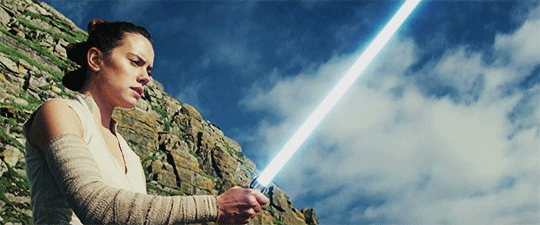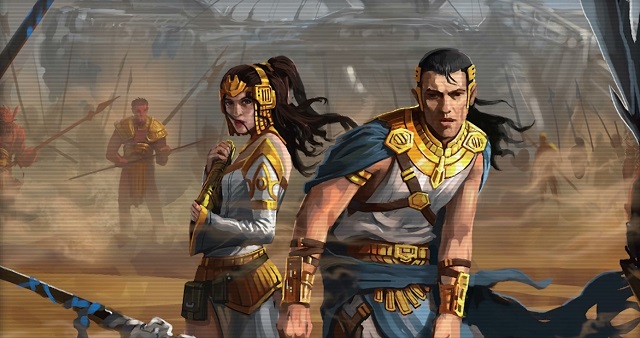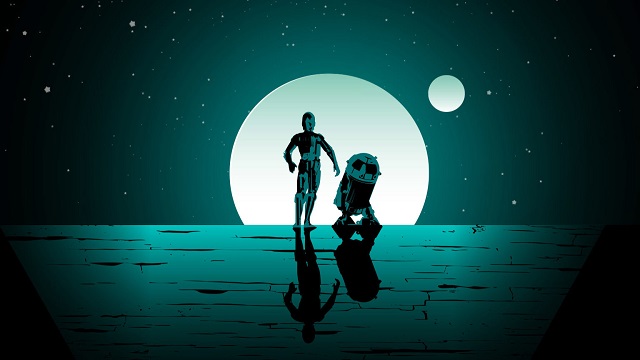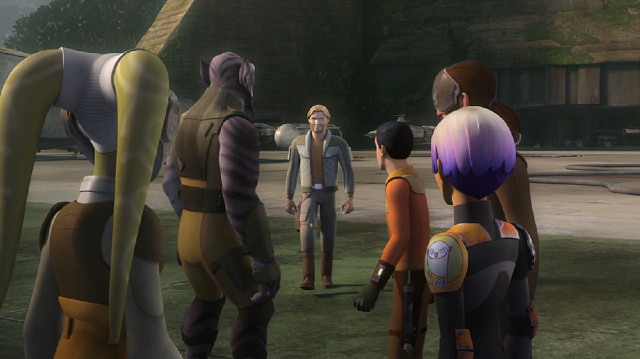
Twenty-three long, speculation-fueled months ago, in the immediate aftermath of The Force Awakens, I asked the staff for their best early guesses and hopes as to the origin of Rey. Jay Shah was Team Solo, mostly out of affection for the legacy of the Expanded Universe’s Jaina Solo and a desire to see Rey channel that role in the new canon. David Schwarz was Team, ah, Durron—his point being that Rey should be the child of new characters, preferably a promising student or students from Luke’s first crop of trainees. Rocky Blonshine was Team Skywalker for all the familiar evidentiary and legacy reasons, and Ben Wahrman, while preferring “that she not be related to anyone”, chose Team Kenobi as a poetic way of splitting the difference between a protagonist coming out of nowhere and one forced to deal with all the story baggage of the Skywalker/Solo family.
I myself was Team Snoke. I go into detail in the original piece but my basic idea was that Snoke was once similar to Aftermath‘s Yupe Tashu—an adviser to Palpatine who gained access to a mysterious source of dark side power and ultimately intended his powerful child to lead the First Order on his behalf, only to have Luke Skywalker steal her away and hide her. TFA, therefore, was not about Snoke looking for Luke as much as Snoke looking for Rey, who he assumes is with Luke. As an aside I mentioned the possibility that she wasn’t his biological daughter, but rather a second attempt at the same experiment that created Anakin Skywalker; thus Snoke would be her figurative father and her actual lineage would be the Force itself—what better birthright with which to claim the mantle of Supreme Leader?
Fast forward a couple years, and that aside is looking much more likely. At nine feet tall, Snoke is pretty definitely an alien, and Rey is pretty definitely a human, meaning a biological relationship seems pretty implausible. I stand by the rest of the theory though—if we meet Rey’s biological parents at all, they could even be First Order loyalists who volunteered for Snoke’s experiments rather than having a baby just pop up randomly in the galaxy. Thematically, what appealed to me about it was the question “what would Luke have done if his father has been Palpatine rather than Vader?” If Rey owes her existence not to some conflicted underling but to the devil himself, what would that mean for her destiny, her “place in all this”? I’m still hoping to find out. Read More



 Our fandom is rarely without some kind of controversy. It’s been like this since the times of message board wars and it feels like social media has only exacerbated this tendency towards grabbing pitchforks and torches that we often show. Sometimes these controversies become full-blown online wars (just look “Reylo” up on Google), sometimes they just fizzle down after a couple of annoyed grunts, and sometimes they actually become polite discussions. A couple of weeks ago one of the latter happened when Florian from
Our fandom is rarely without some kind of controversy. It’s been like this since the times of message board wars and it feels like social media has only exacerbated this tendency towards grabbing pitchforks and torches that we often show. Sometimes these controversies become full-blown online wars (just look “Reylo” up on Google), sometimes they just fizzle down after a couple of annoyed grunts, and sometimes they actually become polite discussions. A couple of weeks ago one of the latter happened when Florian from 